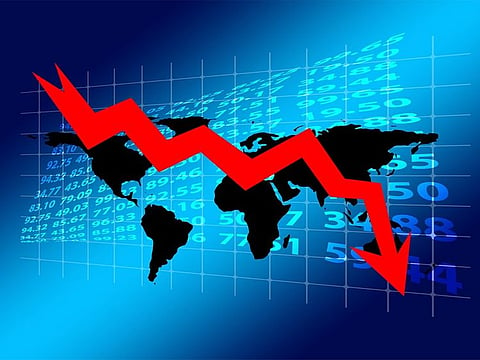Challenging times for Gulf states
Austerity measures required to fight pandemic and low oil prices

Gulf countries face a steep decline in government revenues as a result of the sharp drop in oil prices. This comes at a time when the region and the world are dealing with the economic fallout of the coronavirus pandemic.
Saudi Arabia on Saturday warned of painful measures to offset the economic impact of the global pandemic. Finance Minister Mohammed Al Jadaan said stringent economic measures that include fiscal retrenchment are required in these challenging times, especially since the world’s largest oil exporter is suffering from historically low oil prices. These belt-tightening measures are necessary to prevent lasting economic damage.
According to the latest forecasts by the International Monetary Fund (IMF) real GDP of oil exporters is projected to contract by 4.2 per cent in 2020. This is a significant downward revision from the 2.1 per cent growth projected in the October 2019 Regional Economic Outlook of the IMF. Oil prices at these levels could result in more than $230 billion in lost annual revenue for GCC oil exporters, placing significant strains on fiscal and external balances.
GCC governments have been swift in initiating broad policy actions to save lives, contain the spread of the pandemic, and support the hardest-hit sectors of their economies. The overall fiscal and monetary support announced so far has been close to $200 billion and averages about 12 per cent of the GDP of the region.
Fiscal prudence required
While the relief packages are substantial, the uncertainty over the impact of the virus outbreak and the trajectory of oil prices is worrisome. Mounting health care expenditure and rising funding requirement for economic support programmes in the face of shrinking revenues have become a massive challenge for GCC governments. Most regional governments, except Oman and Bahrain, have substantial external balances and strong credit profiles that will enable them to fund the emergency requirements by dipping into the reserve kitty and or through borrowings.
With no real recovery seen for oil prices in the near term, these governments could fast deplete a substantial portion of their reserves while building significant debt piles, if expenditures continue unchecked.
Therefore, GCC states must pursue an economic policy trajectory based on fiscal prudence. Health measures and economic stimulus packages are unavoidable, but all unnecessary costs that are not related to the coronavirus crisis must be cut. These are trying times for the economies. The solutions might be painful but necessary. Out-of-the-box measures are required. The Saudi minister’s statement points in the right direction.



